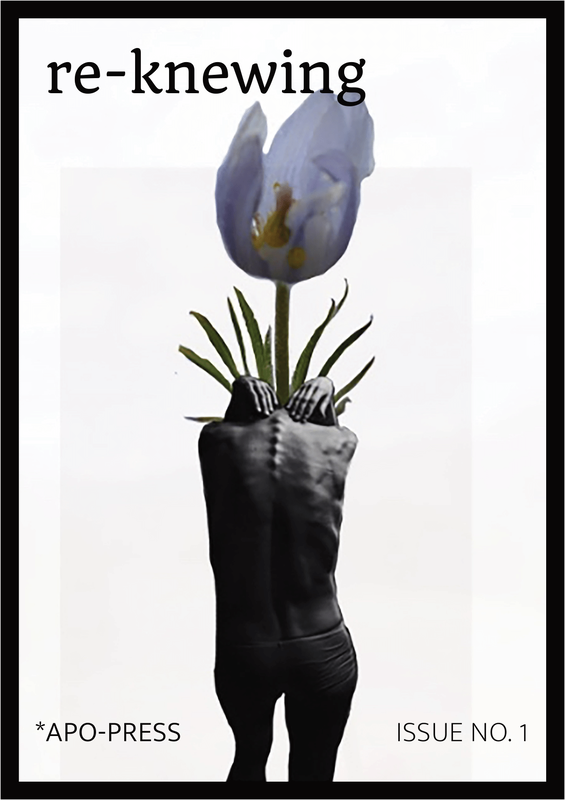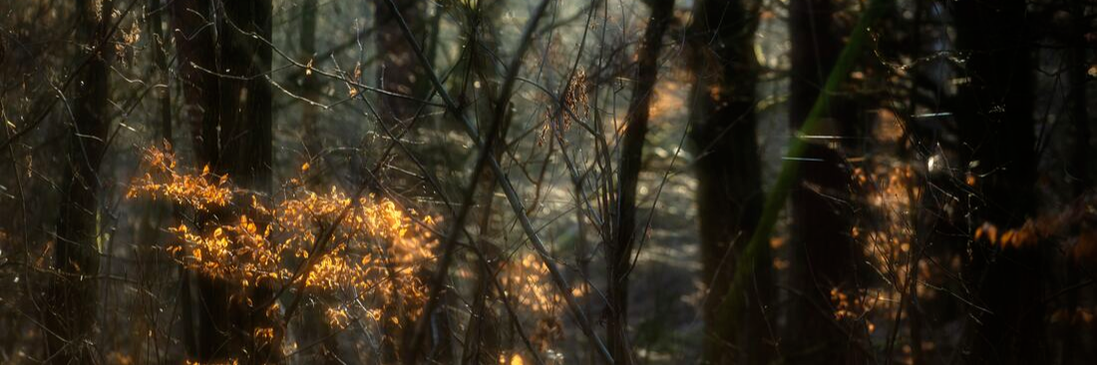|
Literary journals, whether in print or online, are becoming quite common, seen everywhere from the bookstore shelf to posts flowing like streams through various online, social media platforms. Some of them stay around for a while; and some, sadly, vanish without much explanation. This happened to me recently when I was seeking a selection to share with one of my classes from an online literary journal that has left in its original shape only a ghostly error code. What happened to it? Where did it go? This brought up some questions for me about the sustainability of literary journals in today’s flooded market: What has staying power? Why read it? What place does this journal have among the others? What shape will this journal leave, if not an error code? And that’s when I found Apo-Press. Apo Press’s foundational, first journal publication, Re-knewing, is an invitation to a world outside of the current, well-tread (and often milquetoast) marketplace of literary journals and the many forms that they take, some fleeting, and some creating a foothold with the audience, which this journal has already begun to do. Re-Knewing is something that feels lovingly and compassionately sculpted into form. The curation of this journal is something in itself to observe; the work within is not simply a smattering of disparate, dissonant voices calling out to be read, but instead, it is a full representation of a rare type of unity, where many pieces have the quality of something that has been well-considered to communicate as a whole. This precise consideration is something that resonates throughout the collection; the more one reads it, the further one goes down a path of playful unconventionality, and a path that is not just accessible to any willing reader, but also one that invites you rethink, or re-know, what you understand about the worlds on offer here, as well as the experiences you are seeking. Among these carefully chosen works are those that make the collection what it is at heart. Avoiding superlatives in my description of these selections is one of my goals in addressing them because when you discover them for yourself, the experiences will consume you; and it will happen, hopefully, in the same ways I myself was consumed, which was enough to prompt multiple readings and a feeling of gratitude that I have this collection at my fingertips. An example of this is Shawnie Hamer’s piece, Ode To the Gritty, a sensual, covert anthem; something that harkens to the traveled wound in all of us. Where “we curate our war,” and where “Grit always remains.” Powerfully written lines such as these not only chisel off the calcification of the daily smog, but these sentences are also gifts—talismans to take with you on your journey. Other standout work include Dennis O'Donnell's Rhadamanthine, which blooms like a container of concentrated atmosphere and silent mystery: “His shadow peaks where yours ends. He eats time. Outside, black stars hang in the heavens. The apple’s flesh is brushed into dirt with its coming.” O’Donnell, like Hamer, shines in this collection, leading the reader to the experience of surprise, and immersion. The work is a configuration to which one returns, repeatedly experiencing certain sentences again and again, if only to absorb the flavors they impart. Similarly, in Su Nadeau’s The Gospel, According to Disco, the reader gets to experience a level of immersive storytelling that evokes the tactile and offers a kind lush urgency: “Everything disappeared and was replaced by a vacuum. I wonder how many fingers a Saint has. As it turned out. Slam. My heart is deaf. Slam. I do. Slam. Lung. Slam. Tight. Slam. Nothing. Slam. Release. My body is the form I’m against.” Completing this collection, I felt filled by language the way one wants to feel when they’ve completed something that gives, and this collection does just that. The mark of anything with staying power is whether or not you will return to it, which goes double for the error code prone world of the literary journal. Did the work inside offer a key to your confusion? Did it unlock a part of yourself you needed to free? Did it help you continue, despite the dark? If you’re lucky enough to find a collection that offers answers, while also creating inexorable questions, then you’ll find yourself returning to it, and this is a collection to which you will return again and again, like I have, to re-orient myself on the path, to renew what I thought I understood. Here is a collection that is, among others, the start of something much bigger, and much needed. Blake Edward Hamilton holds an MFA in Creative Writing from Naropa University. His work has appeared in World Literature Today Magazine: Windmill, NPR, South Broadway Press, and Bombay Gin Literary Journal, among others. He is the author of the poetry collections, All Through Your Multiple Selves and Move In Silence, (Spartan/Luchador Press), and recently published his first novel, Hiraeth (Spuyten Duyvil Press).
0 Comments
Leave a Reply. |
Authorcollective.aporia Archives
May 2023
Categories
All
© 2019-2021 collective.aporia
|



 RSS Feed
RSS Feed
